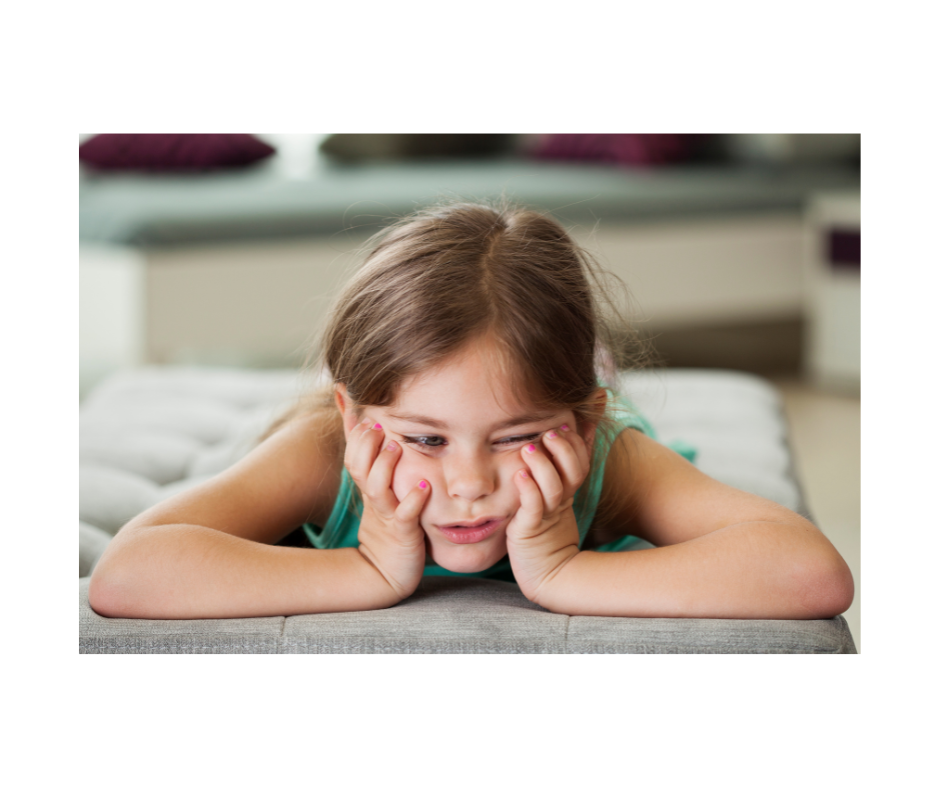Why Boredom Is Actually Good for Kids (Even When It Feels Uncomfortable for Us as Parents)
Feb 06, 2025
“I’m booooored!” If you’re a parent, you’ve probably heard this phrase more times than you can count. And let’s be honest—it can be so tempting to solve it immediately. You hand them a tablet, turn on a game, put on a show, or schedule another activity. But what if boredom isn’t a problem—it’s actually a gift?
As a physician, public health specialist, and mom, I get it. In today’s fast-paced, tech-driven world, it can feel almost wrong to let our kids be bored—like we’re failing to provide enough stimulation or entertainment. But here’s the truth: boredom is the birthplace of creativity, independence, and resilience. When we constantly entertain our kids or give them instant gratification, we’re robbing them of an essential skill: the ability to sit with discomfort, think for themselves, and create their own fun. So, let’s talk about why boredom is actually healthy for our kids—and why resisting the urge to “fix” it can be one of the best things we do as parents.
Our kids live in a world of constant, instant gratification. We live in an age where waiting for anything feels optional. Want to watch a show? No waiting for commercials—just click “next episode. Want to ask a question? No need to wonder—just Google it. Hungry? Food delivery in 20 minutes. Now imagine what this does to a child’s developing brain.
Dr. Jonathan Haidt, in his book The Anxious Generation, talks about how kids today have fewer opportunities to tolerate discomfort, frustration, or delayed gratification because entertainment, answers, and dopamine hits are always just a swipe away. The result?
Lower frustration tolerance (meltdowns when things don’t go their way).
Decreased creativity (because they don’t have to invent their own fun).
More anxiety (because they haven’t learned how to sit with discomfort).
“Children who grow up without experiencing frustration and boredom never develop the tools to handle life’s inevitable challenges.” — Dr. John Ratey, Harvard Medical School

Simply put: if kids never have to sit with boredom, they never learn how to tolerate discomfort, regulate emotions, or generate creative ideas. And this isn’t just about kids—it’s a muscle many of us as adults struggle with, too.
What happens when kids are bored? Magic. When we resist the urge to entertain our kids at every moment, something incredible happens.
Their brains start problem-solving.
They invent games, create stories, and experiment.
They make art, build forts, and explore their world.
They read a book, stare at the clouds, or simply daydream.
Boredom forces their brains to start working—to generate ideas instead of passively consuming them.
“Boredom is the space where creativity and innovation begin.” — Dr. Teresa Belton, University of East Anglia
And creativity isn’t just about art or music—it’s about problem-solving, adaptability, and learning how to engage with the world in a meaningful way. But here’s the catch: If kids are used to instant entertainment, they’ll resist boredom at first—hard. (Cue the whining, the flopping on the floor, the dramatic “There’s NOTHING to dooooo!” performance.) This doesn’t mean they actually have nothing to do. It means they’re waiting for external stimulation instead of generating ideas internally.
The key is to let the discomfort happen—without rushing to fix it.
In The Anxious Generation, Dr. Haidt discusses how screen-based entertainment has shortened kids’ attention spans and decreased their ability to sit with boredom. Why? Because apps like TikTok, YouTube Shorts, and endless scrolling social media train the brain to crave: Fast dopamine hits (quick bursts of pleasure), constant stimulation (no need to think or create), shorter attention spans (because real life isn’t as instantly gratifying). Studies show that excessive screen use rewires the brain to expect constant novelty, making activities like reading, problem-solving, or imaginative play feel “too slow” and less rewarding. This is why many parents find that their kids “don’t know how to play anymore.” It’s not that they can’t—it’s that their brains haven’t had to practice. And like any muscle, creativity and self-directed play strengthen with use. The good news? We can reset this.
How to Encourage Healthy Boredom (Without Losing Your Mind as a Parent)
So, what do you do when your child comes to you, dramatically proclaiming, “I’m bored!”
Here’s what you don’t do:
Don't instantly hand them a screen.
Don't suggest 15 different activities (which they will reject anyway).
Don't feel guilty or like you’re a “bad” parent.
Instead, try this:
Step 1: Validate
“Boredom is normal! It just means your brain is looking for something to do.”
Step 2: Hold the Line
“It’s okay to be bored. I know you’ll find something fun to do.” (Then walk away!)
Step 3: Provide Open-Ended Materials
Art supplies
Legos, blocks, or puzzles
Outdoor play equipment
Books, journals, or storytelling prompts
Random household objects (cardboard boxes = instant fun!)
Step 4: Give Them Space to Struggle Through It
It might take 10-15 minutes of flopping and complaining before their brain kicks in. This is normal! Once they push past that initial resistance, they will start creating on their own.
“The greatest ideas, inventions, and childhood memories come from moments of boredom.” — Dr. Peter Gray, Boston College
In a world that moves at lightning speed, we need to protect our kids’ ability to slow down, think, and create. Boredom isn’t a failure of parenting—it’s a gift we give our children. It’s the springboard for creativity, resilience, and deep thinking. So the next time your child says, “I’m bored!”—don’t fix it.
Smile, hold the line, and let them discover what their mind is capable of. Have you seen your child do something amazing after being bored? Let us know in the comments below!
Parenting Alongside You!
Dr. Emma and the Aparently Parenting Team
SUBSCRIBE FOR FREE PARENTING RESOURCES
We know you're busy! So, we'll make sure to only send the IMPORTANT PARENTING stuff!!
We hate SPAM. We will never sell your information, for any reason.
